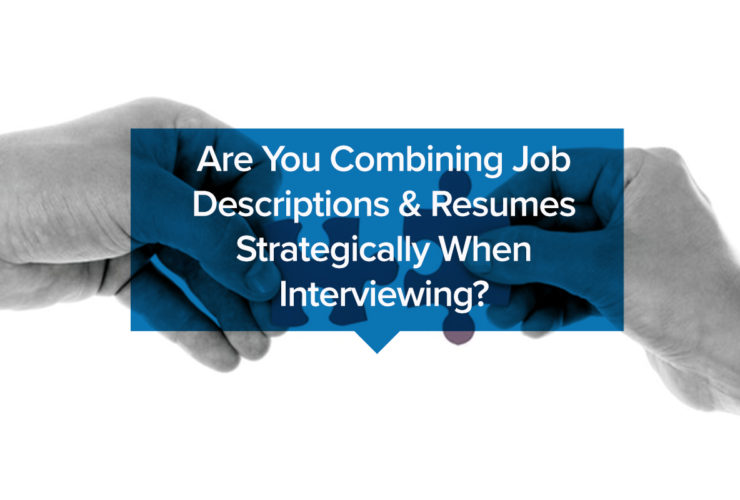One of the most talented individuals I ever managed would never get hired in today’s workforce, and that makes me sad.
When I led a team at IBM some years ago, our team was comprised almost entirely of computer science graduates, as you might imagine. That is, except for one woman with a PhD in medieval French literature. Because she had a background that was entirely different than the rest of us — and because that background was academic and required her to defend theses and dissertations for years — she was absolutely great at thinking outside of her realm and knowing how to problem-solve. In short, she could see the things that the rest of us, weighed down with technical tunnel vision, had problems seeing. She was a superb addition to the team.
In the modern hiring manager-recruiter relationship, though, I doubt she’d find her way onto that team. Much of recruiting right now comes down to lists of 30 or more technical skills. The candidate with the most checkboxes wins (or, sadly, the candidate that has the most checkboxes and the least salary cost). This isn’t the right way to get the best people.
But the hiring manager-recruiter relationship is a perennial question, and most organizations have still yet to solve it. Can it be solved? Yes. There are a few key approaches.
Ask the hiring manager about the scope of personal action for this hire
Is the hiring manager thinking that the new hire will be someone who fulfills assignments, or is someone who is going to take a technically creative lead on his/her team? This is a crucial question. Most people with the right pre-existing skill sets can enter roles where their main function is fulfilling assignments. But only people with the right combination of logic and thinking skills can be a lead for the department moving forward.
I once managed a man named Mike at the Dimension Data offices in Kalamazoo, Michigan. I’d call Mike an “intuitive simplifier.” He was a good coder, yes, but he was also good at getting to the heart of what our systems needed to do. Without fail, he delivered simpler, more elegant systems instead of the bulkier, more complex ones we were used to building. We found Mike, who was a tremendous early career hire for us, by asking this series of questions of candidates and hiring managers:
To the candidate: “How and when have you solved a problem using ideas and techniques outside the realm of the problem? How and when have lessons you’ve learned outside your discipline (for example, software development) helped you in your discipline?”
If a candidate can walk you through this successfully, they likely have the analytical skills and creativity you need in a future anchor for the department. If you just need someone to hit their marks — that is, execute against precise instructions — this question is less important.
To the hiring manager: “How much learning does this role involve? How technologically fresh do they need to be? What scope does this role allow for creativity”
This is important to understand: in 2000 or so, the “game changing” technologies appeared every 1.5-2 years. That gave recruiters enough lead time to locate the talent their hiring managers needed. Now, game changing technologies emerge in under a year. With so much change afoot companies and candidates easily get distracted, not knowing what technologies to embrace and which to ignore. Does your business require swift adaptation to technology or other emerging trends (such as shifts in social media usage and platforms)? If so, your hiring needs to focus more on adaptability and the wise embrace of change than on ephemeral skills lists that rapidly go out of date. Do you need someone with the potential to learn and grow quickly? If so, you need to look to the candidates’ background — have they shifted industries, teams, roles, responsibilities?
As an aside, in the past we looked unfavorably on candidates that moved between industries and technology platforms. But with the way the tech stack and business overall move now, adaptability in a candidate can be a good sign. If they have good recommendations, technical skills, and can answer questions about how they learn, their past history of shifting industries shouldn’t automatically count against them. In fact, past experiences that demonstrate adaptability and growth are good signs your candidate will do well in today’s fluid environments.
To the hiring manager: “How much supervision is this role going to need? Would you consider someone with more experience and offer a higher salary for the role?”
Fresh-out-of-school candidates — which my colleague Amrut will address in a future eTeki article — and junior candidates tend to need more supervision as they develop. Many hiring managers are busy people who want projects finished and delivered on time. But if they’re too busy to supervise and develop, their less experienced teammates may fail to develop as they should, causing frustration on both the manager’s and employees’ parts.
Don’t shy away from considering advanced candidates who are further along in their career. Granted, experience often comes with a higher price tag that can put the candidate out of reach. But here, too, a broader perspective can help. Higher salary costs can be offset by shorter ramp up time after hiring, greater team velocity (meaning that the team is more productive), and lower supervision costs. If you take into account the entire lifecycle of an employee’s contribution to your company, you may find that advanced candidates cost less overall than less experienced ones, especially for roles that require a lot of autonomy.
This discussion can be awkward for hiring managers, because for a variety of reasons they may harbor reservations about taking on employees with more advanced skills than they have. Likewise, they may feel constrained by rigid budget rules. Nevertheless, the discussion is worth having.
Recruiting-hiring manager relationships are about building shared trust. Today’s highly competitive employment market demands flexibility and creativity of both recruiters and hiring managers. I’ve repeatedly been asked why my engineering teams stayed together for so long, continuously reinventing themselves to meet new challenges and adapt to new technologies. My answer, after giving credit to luck and good fortune, is this: I learned to look past what the candidate can do for me today to imagine what their creativity, independence and problem-solving skills could do for me in the future tomorrow I could only barely imagine.

Reed Hyde, eTeki Tech Advisory Panel
Reed Hyde brings a globe-spanning mix of business and technology expertise. While serving as the product owner of the NTT / Dimension Data worldwide cloud, he and his team relaunched the company’s public cloud and grew the company’s portfolio with new private and hybrid cloud, reversing the company’s decline in cloud sales.







